Recycling restaurant cooking oil takes many forms. The best ways to recycle insure that safety is a priority for restaurant employees. The best ways to recycle cooking oil minimize the risk of accidents, spills, falls and burns.
The Food Service Industry reports $12B in costs of slips, falls and burns, most of which are associated with cooking oil.
Each year, more than 3 million foodservice employees and 1 million guests are injured as the result of a slip-and-fall accident. It is estimated that the foodservice industry spends more than $2 billion each year for such injuries and it is rising by 10% every year.
Most cooking oil is recycled by draining oil from fryers into a container, which is taken outside to a cooking oil recycling bin, and dumped into the bin to await pickup by a licensed used cooking oil recycling company. The containers used to transport the oil may be a bucket, a metal container, or a shortening shuttle. With this method you must be sure the oil has cooled to a temperature to be safely handled.
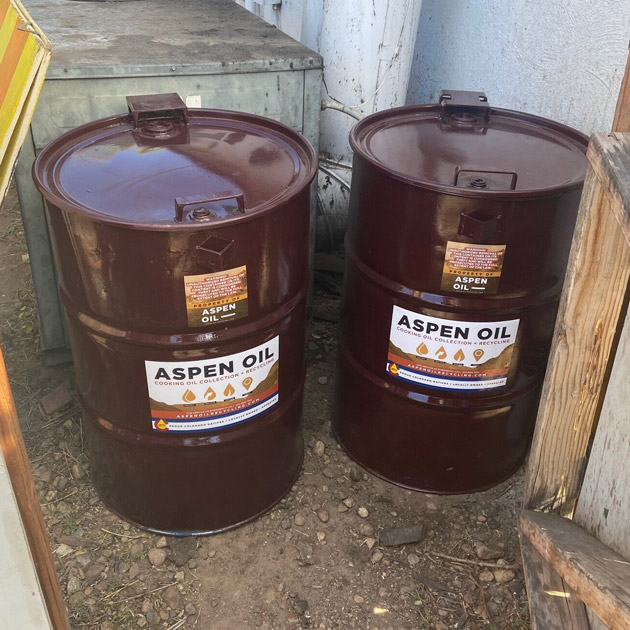
Outdoor tanks come in a variety of sizes from Aspen Recycling. And we have many custom installations of automated, completely enclosed, indoor tanks, a few of which are pictured below:
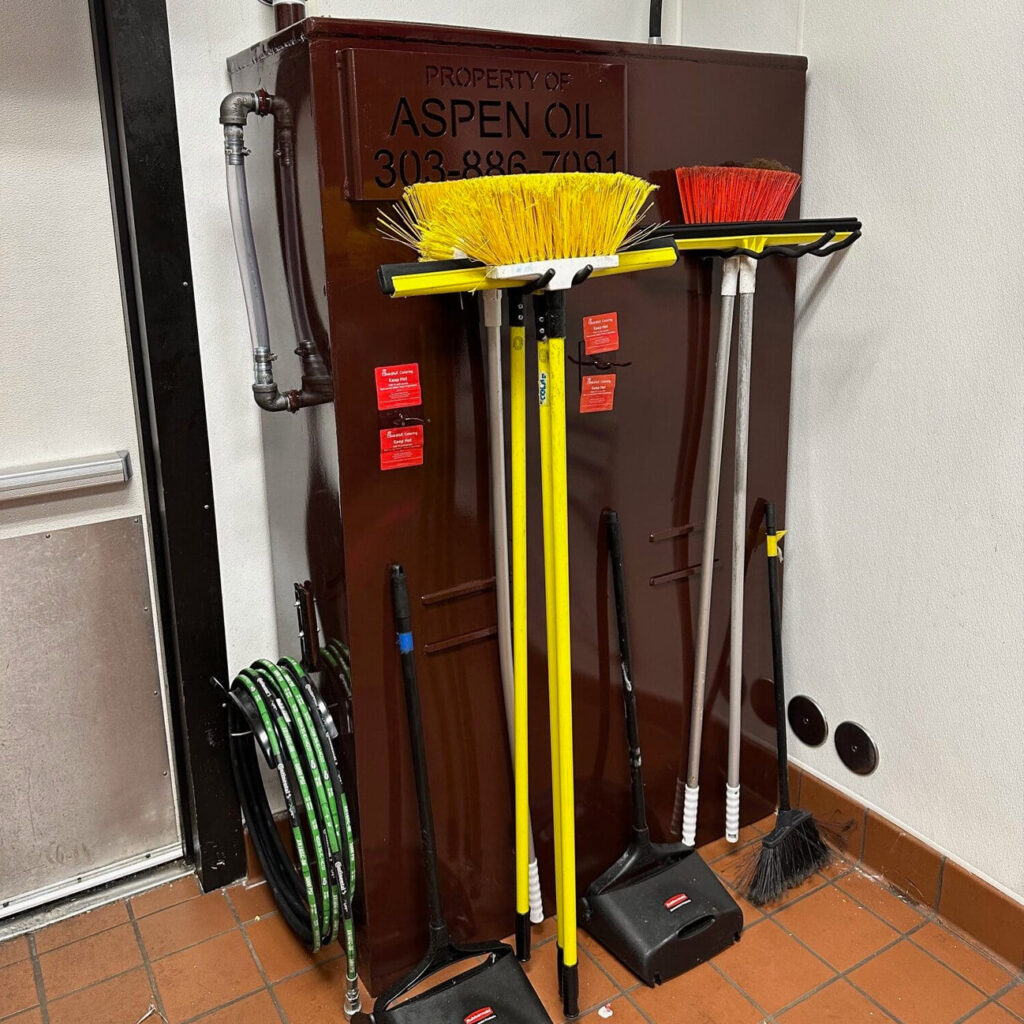
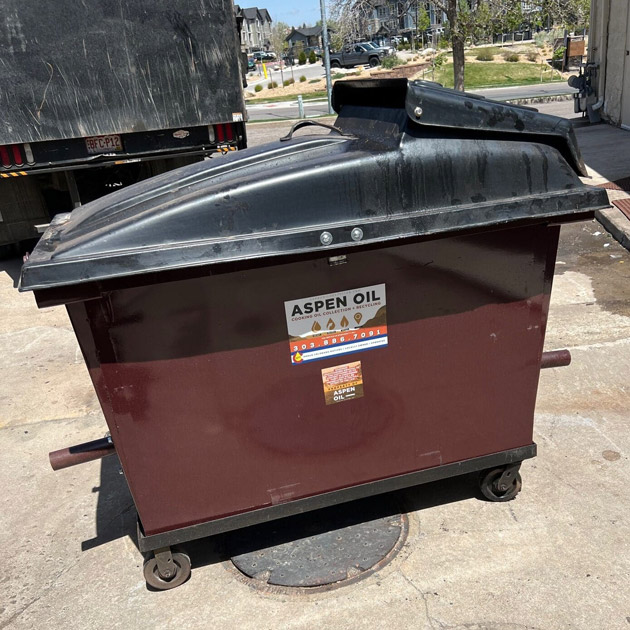
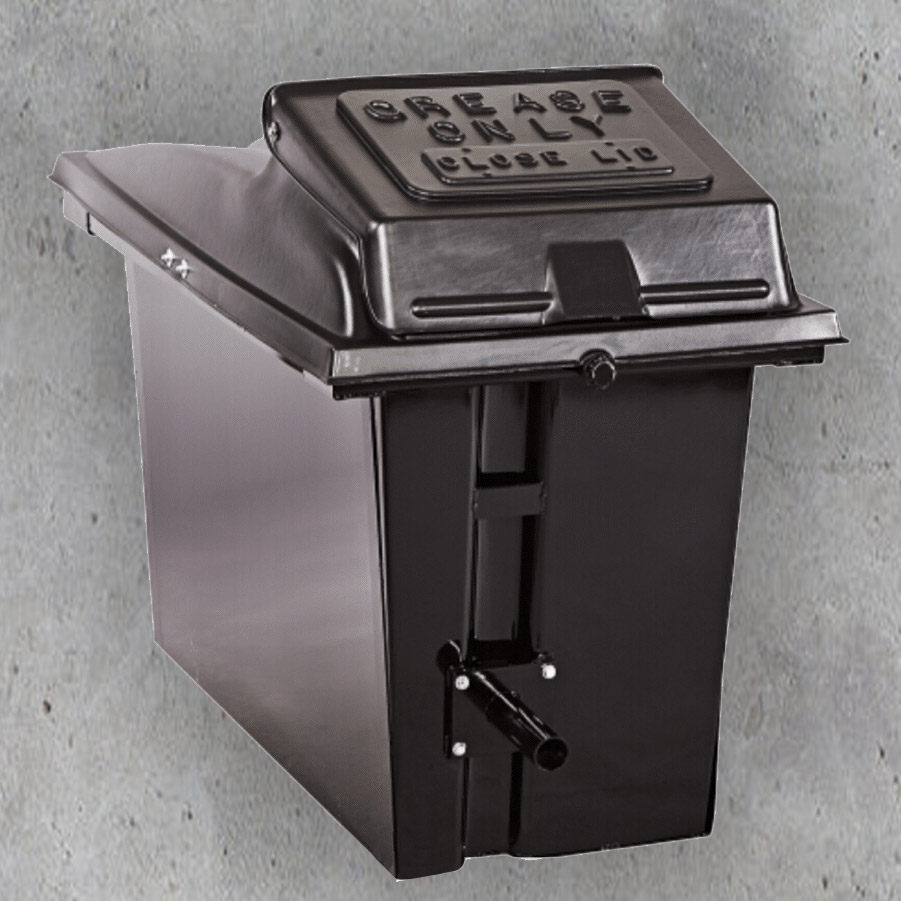
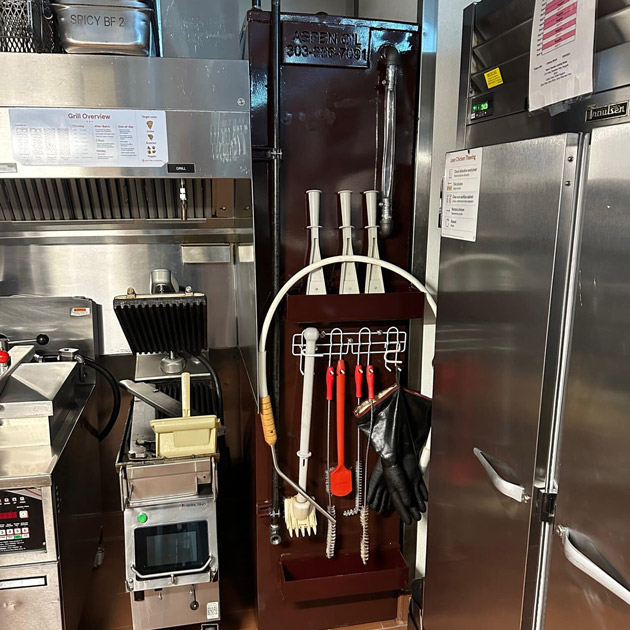
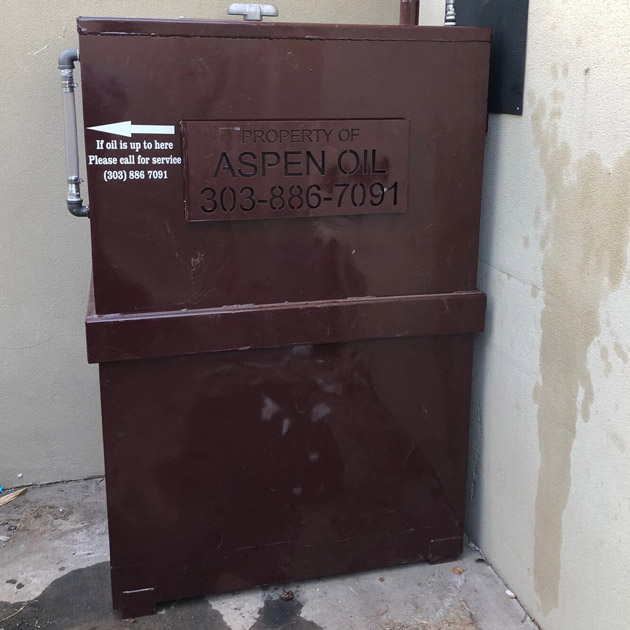
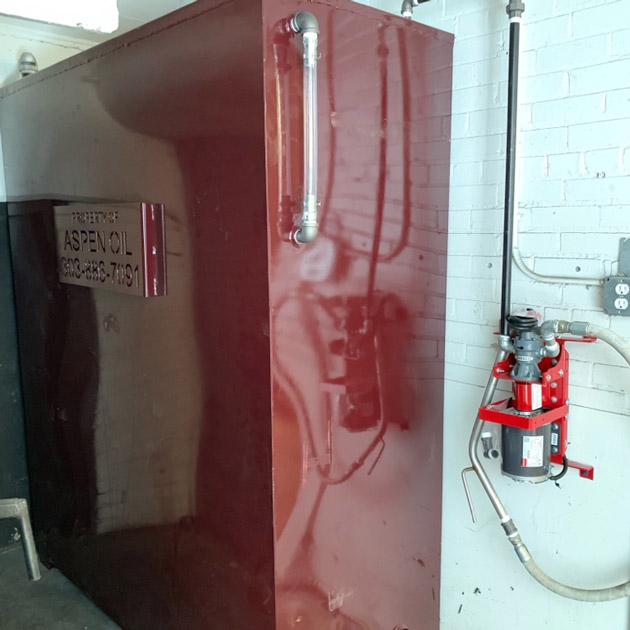
The tanks should be locked and kept in a semi-enclosed area because cooking oil theft has become a large and dangerous business.
Where kitchen space is at a premium and the quantities of oil are not large, some restaurants will use an eco-tub. They move on wheels and can be easily stored under countertops or sinks. A UCO recycler can bring a hose right into the kitchen to remove the oil from this ecotub.

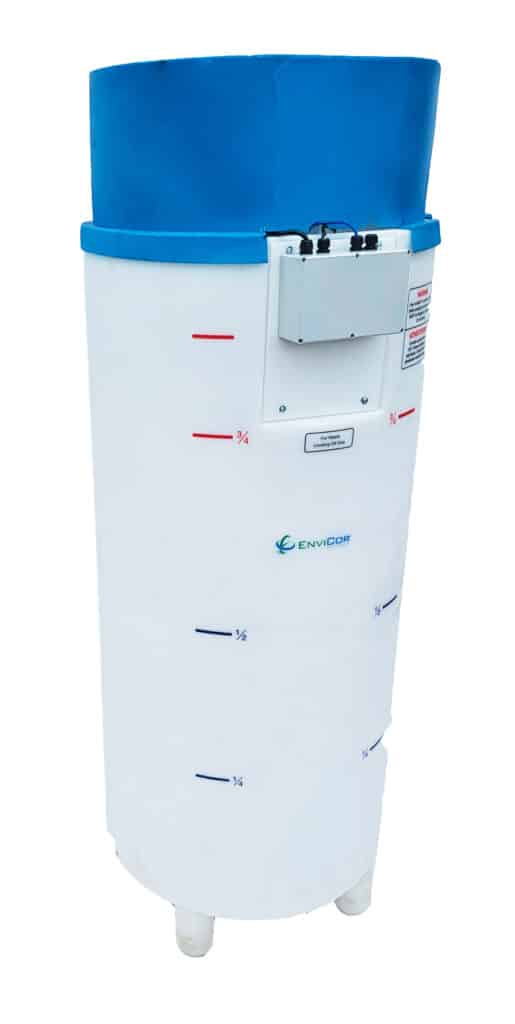
With larger volumes of cooking oil and available space you can use an indoor system. This storage tank or bin is located inside the building where the kitchen is located and the oil is transported to the indoor tank in one of three ways.
Transporting oil to the tank can be done with oil caddy (also is a portable filter cart)
The caddy is rolled under the fryer, the oil emptied into it. The cart is moved to the tank where the pump on the tank pulls all of the oil into the storage tank. This particular cart can also be used to filter oil.
Another method to transport oil is to attach a pipe or flexible hose to the oil tank and a “wand” at the other end. The wand is dipped into the fryer oil and the pump transports the oil directly from the fryer to the tank.
If you kitchen has self-filtering fryers you can attach the pipe coming from the tank directly to the fryer and then push a button to pump the oil directly into the storage tank. This method has the added benefit of no one ever happening to touch or come near the oil. Self filtering fryers are available from Henny Penny. It is a fully self-contained system. And you can still purchase your own virgin cooking oil and continue to save money with your choice of oil.
So, indoor tanks and indoor recycling represent a gold standard in cooking oil disposal, because you maximize the safety of your restaurant employees while minimizing the opportunity for the theft of used cooking oil.
Choosing a partner to recycle your used cooking oil is as important as any restaurant supplier you will choose. Get it wrong and you are one disaster away from closing your business. Here is what to look for in a cooking oil recycler:
These are the questions to ask:
How long have they been in business?
10 years is good. When oil prices are high, fly-by-nighters enter the business and then disappear when prices go down. You want a company with longevity and a solid track record.
Do they have references?
Call and speak to an existing client. More importantly check out their google reviews.
Do they have sufficient liability insurance?
Get a copy and ensure it is at least $1MM
Can they provide automation if you want it?
Maybe not day 1 but down the road you may decide you want to automate.
Can you reach the CEO at any time?
This is a big one. No one wants to reach a call center at 1:00 am and wait while they try to find someone who can make a decision. You want the CEO’s number and 24/7 access.
Are they based locally?
There are many benefits to buying locally. Some big nationwide companies try to disguise the fact they are outsourcing their service to any guy with a truck who says he can handle it. No quality control and no assurance of service. With other big companies your restaurant will be a small pebble in a very big pond. Need service? Yes, when they can get around to it. IF you want great service and access then buy local. Aspen Oil is Denver based and always will be. We are your neighbor and work to ensue your satisfaction every day.
Rebates for used cooking oil exist. Cooking oil after all has value. The challenge is that the value of cooking oil changes every day. Cooking oil (sometimes referred to as yellow grease, although they are not exactly the same) is a commodity and commodity prices fluctuate with supply and demand. The demand for renewable fuels has driven the price of used cooking oil higher in recent years. The US Government RFS framework and the State of California LCFS framework for subsidizing and requiring the blending of renewable fuels has increased demand. Those regulations change year to year with the political climate and competitive offerings. See Factors Affecting the Price of Yellow Grease for a more in-depth discussion of prices.
So, rebates do exist and we offer them as conditions permit. They will vary with the volume and quality of oil you provide and the market conditions. Generally we will require a contract for rebates to be a consideration.
Contact us now and we’ll start your UCO service asap!
(303) 886-7091 Contact Us